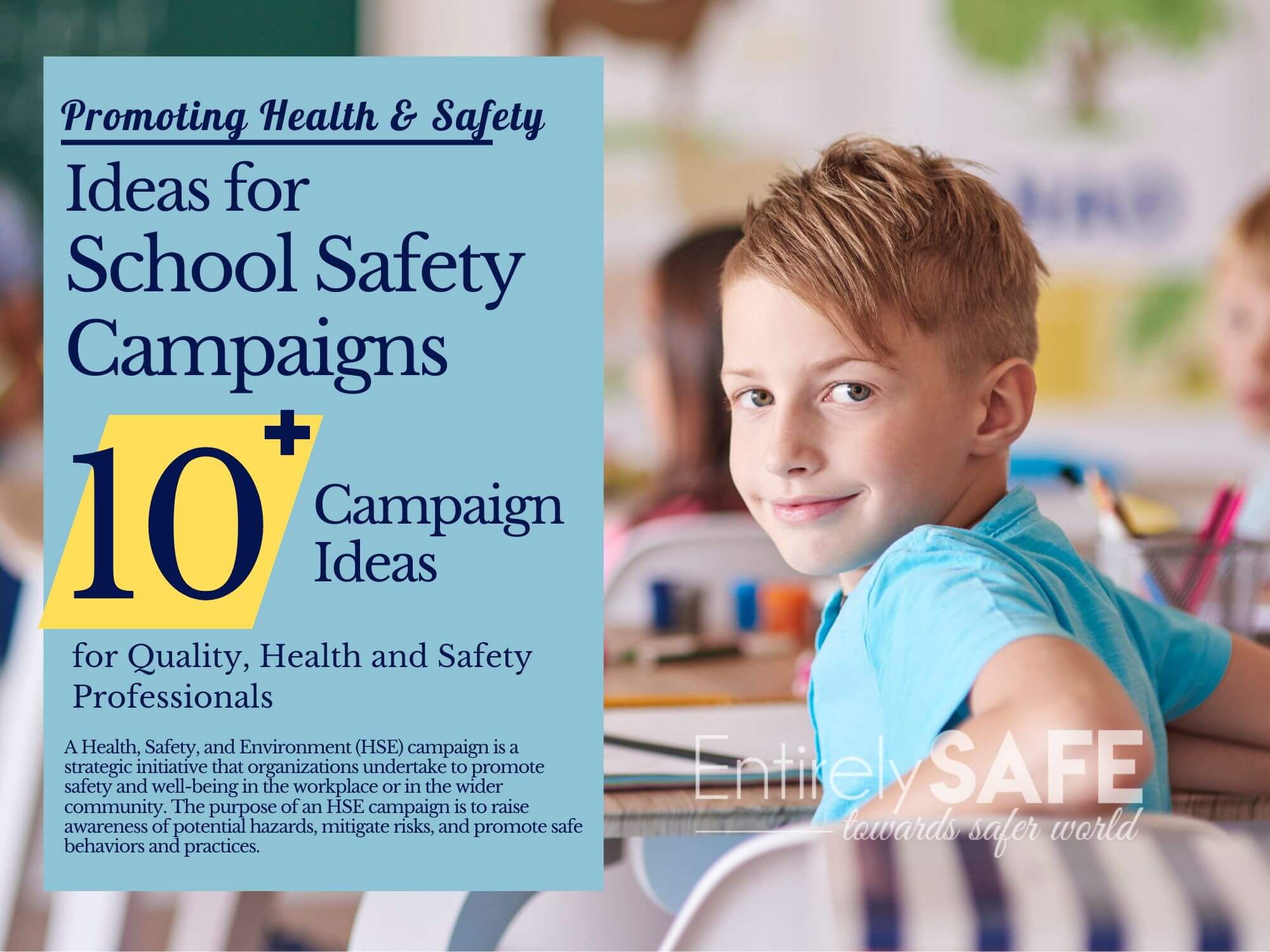Health, Safety and Security Campaigns for Schools and Universitites

Educational institution campaigns are initiatives undertaken by educational institutions, such as schools, colleges, and universities, to promote education and awareness on various issues. These campaigns may involve various strategies such as communication, education, and advocacy.
Educational institution campaigns may focus on a wide range of issues such as health and wellness, safety, sustainability, social justice, and diversity and inclusion. They may also be targeted towards specific populations such as students, faculty, staff, and the broader community.
School Campaigns to Promote Kindness, Health, and Environmental Awareness
- Building Safety Campaign: Develop a campaign to promote building safety in schools, focusing on fire safety, proper use of equipment and facilities, and emergency response procedures.
- Traffic Safety Campaign: Develop a campaign to promote traffic safety around schools, focusing on safe walking and biking practices, proper use of crosswalks and pedestrian signals, and awareness of school bus safety laws.
- Substance Abuse Prevention Campaign: Develop a campaign to promote substance abuse prevention among students, emphasizing the risks associated with drugs and alcohol, and promoting healthy alternatives to substance use.
- Mental Health Awareness Campaign: Develop a campaign to promote mental health awareness in schools, emphasizing the importance of self-care, stress management, and seeking help when needed. This campaign can include workshops, resources, and other activities to support students’ mental health and wellbeing.
- Playground Safety Campaign: Develop a campaign to promote playground safety in schools, emphasizing the importance of safe play practices, proper use of equipment, and adult supervision.
- Active Shooter Response Campaign: Develop a campaign to educate students, faculty, and staff about what to do in the event of an active shooter situation. This campaign can include training sessions, drills, and other resources to help individuals prepare for such an event.
- Bullying Prevention Campaign: Develop a campaign to promote bullying prevention in schools, emphasizing the importance of creating a safe and inclusive environment for all students. This campaign can include awareness-raising activities, workshops, and other resources to help students and faculty recognize and respond to bullying.
- Cybersecurity and Online Safety Campaign: Develop a campaign to promote cybersecurity and online safety among students, faculty, and staff. This campaign can include education on safe online practices, password management, and protecting personal information online.
- First Aid and CPR Training Campaign: Develop a campaign to promote first aid and CPR training in schools, providing resources and training opportunities for students and faculty to learn basic first aid and life-saving skills.
Real-Life Examples of School Campaigns
Below are some real-life examples of school campaigns that were rolled out by various countries:
- “Be Kind” campaign: In 2019, a school in Bristol, UK launched a “Be Kind” campaign to combat bullying and promote kindness among students. The campaign included workshops, assemblies, and a social media campaign to raise awareness of the impact of bullying and encourage positive behavior.
- “Screen-free Week” campaign: Many schools in the United States participate in “Screen-free Week” campaigns to encourage students to reduce their screen time and engage in other activities, such as reading, playing outside, or spending time with family and friends.
- “Walk to School” campaign: This campaign encourages students to walk or bike to school instead of being driven by car. It promotes physical activity, reduces traffic congestion and air pollution, and can help students arrive at school more alert and ready to learn.
- “Mental Health Awareness” campaign: In recent years, many schools have launched campaigns to promote mental health awareness and support for students. These campaigns may include workshops, assemblies, or counseling services to help students cope with stress, anxiety, and other mental health issues.
- “No-Idling” campaign: Some schools have launched campaigns to reduce idling in school drop-off and pick-up areas to reduce air pollution and protect the health of students and staff. These campaigns may include signage, education materials, and enforcement of anti-idling policies.

